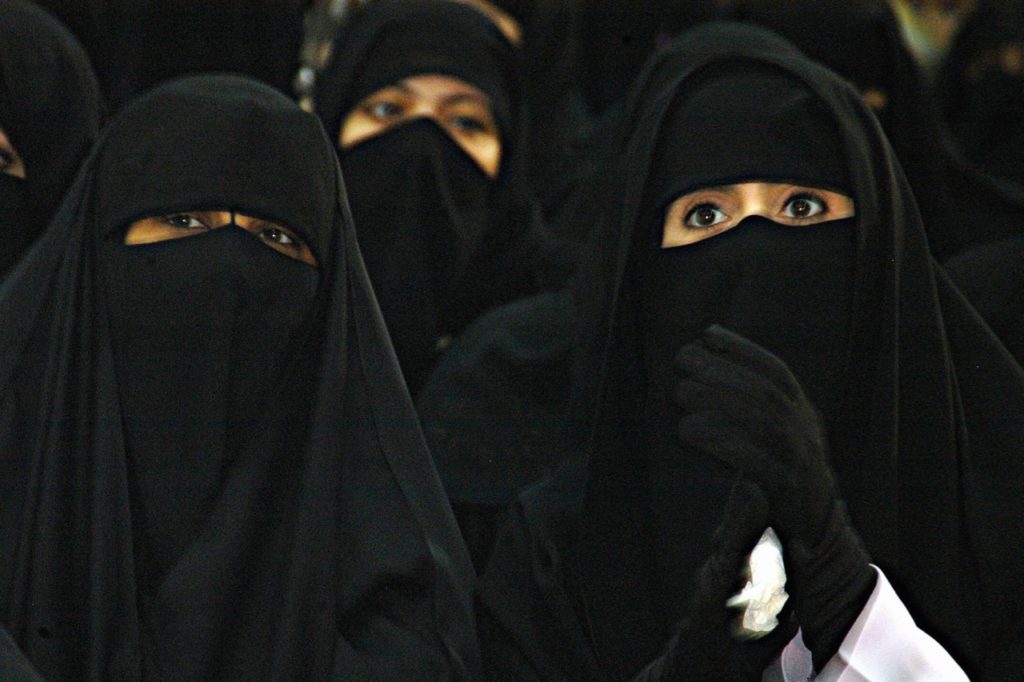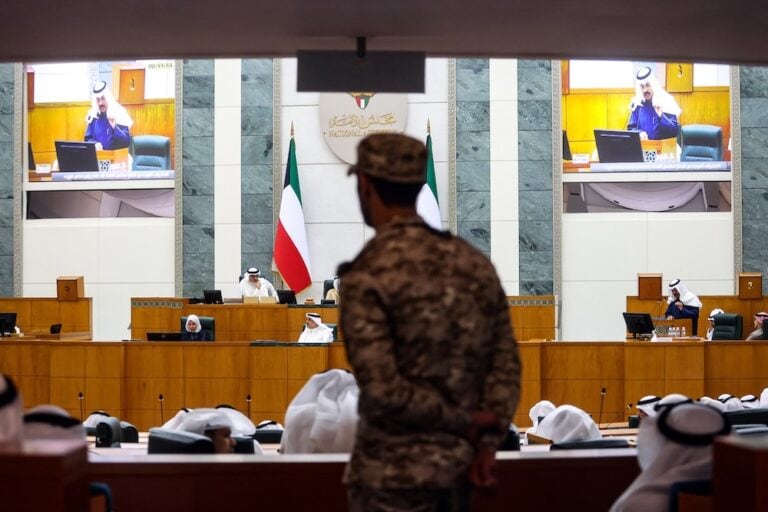The activists are being investigated on charges of threatening the state, spreading false news, harming the reputation of friendly countries, and misuse of the telephone.
This statement was originally published on gc4hr.org on 21 July 2019.
According to reports received by the Gulf Centre for Human Rights (GCHR), a dozen Bedoon activists who were arrested earlier this month have been ordered by the Public Prosecutor’s Office to remain in a prison belonging to the State Security Bureau of Kuwait while the investigation is still pending.
On 21 July 2019, 12 detained activists were brought before the Public Prosecutor. They are being investigated on charges of threatening the state, spreading false news, harming the reputation of friendly countries, and misuse of the telephone.
The activists are being held in a prison controlled by the State Security in which they complain about ill-treatment and the inability to distinguish between night and day in their cells. The detained activists appeared exhausted from lengthy interrogations, with pale faces. They have asked to be transferred to the Central Prison, but their request was rejected by the Public Prosecution.
On 12 July 2019, the Criminal Investigation and the State Security started an operation to cordon the homes of leaders and organisers of previous sit-ins who demanded rights for the Bedoon community, cordoning their homes with Mazda and GMC vehicles. The community leaders had also called for a new sit-in that same day after Ayed Hamad Moudath, a 20-year-old Bedoon, committed suicide on 7 July 2019 due to his frustration with not having any identification papers that he could use to study, work and obtain public services.
This security operation resulted in the arrest of the following activists: Abdulhakim Al-Fadhli, Ahmed Al-Onan, Awad Al-Onan, Mutaib Al-Onan, Abdullah Al-Fadhli, Yousef Al-Osmi, Ahmed Al-Anzi, Yousif Al-Bashig, Nawaf Al-Bader, Jarallah Al-Fadhli, Hamid Jamil and Alaa Al-Saadoun. The only woman among the detainees, Alaa Al-Saadoun, was released after midnight.
For further information, see our previous appeal of 14 July 2019.
On 11 July 2019, security forces also arrested Mohammed Al-Anzi after he spoke at a demonstration the previous day in support of the rights of the Bedoon community.
Lawyers Sanaa Al-Shammari, Abdulaziz Al-Ejl, Abdullah Al-Hamad, Mohammed Al-Ajmi, Hani Hussain and Ahmed Al-Hammadi were present during the prosecutors’ investigations with the 12 activists, which were reported to have been lengthy over many days.
GCHR is deeply concerned about the targeting of human rights defenders and peaceful protestors in Kuwait, including those advocating for the rights of the Bedoon community, such as prominent human rights defender Abdulhakim Al-Fadhli, as part of a continuing pattern adopted by authorities aimed at putting serious limitations on civic space, in order to impede human rights defenders and activists from carrying out their legitimate and peaceful activities.
GCHR also strongly believes that their continued detention is a blatant violation not only of fundamental human rights principles but of the Kuwaiti Constitution, which provides for the right of individuals to participate in peaceful gatherings.
GCHR urges the Government of Kuwait to:
- Immediately and unconditionally release all detained human rights defenders and activists, and drop any possible charges that may be brought against them;
- While they remain incarcerated, transfer them to the Central Prison and ensure that they are treated properly in accordance with the United Nations Standard Minimum Rules for the Treatment of Prisoners;
- Declare full recognition of the civil and human rights of the Bedoon community in Kuwait; and
- Ensure, in all circumstances, that all human rights defenders in Kuwait are able to carry out their legitimate human rights work without fear of punishment and free of all restrictions, including judicial harassment, and that people are free to freely carry out peaceful protests.
GCHR respectfully reminds the authorities in Kuwait that the United Nations Declaration on the Right and Responsibility of Individuals, Groups and Organs of Society to Promote and Protect Universally Recognised Human Rights and Fundamental Freedoms, adopted by consensus by the UN General Assembly on 09 December 1998, recognises the legitimacy of the activities of human rights defenders, their right to freedom of association and to carry out their activities without fear of reprisals. We would like to draw your attention in particular to article 5 (c), which states that:
For the purpose of promoting and protecting human rights and fundamental freedoms, everyone has the right, individually and in association with others, at the national and international levels:
C) Liaise with non-governmental organizations or intergovernmental organizations.
And article 6 (c), which states that everyone has the right, individually and in association with others, to:
(C) To study, discuss, form and hold opinions on the observance, both in law and in practice, of all human rights and fundamental freedoms and, through these and other appropriate means, to draw public attention to those matters.



